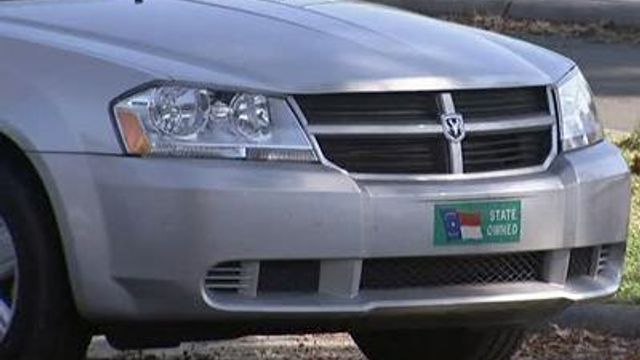N.C. pays millions for state vehicles to sit parked
North Carolina's state motor fleet is more than 8,500 vehicles strong and travels more than 100 million miles each year. A WRAL News investigation found that some state agencies paid millions for miles they did not drive and others had questionable record-keeping practices.
Posted — UpdatedA WRAL News investigation found that some state agencies paid millions for miles they did not drive and others had questionable record-keeping practices.
The state motor fleet is receipt-driven and gets no money from the state's general fund. Agencies pay a monthly fee for the cars based how much they drive, but the mileage scale only slides one way. There is no provision to save money by driving less.
- Find out how many vehicles each N.C. agency has.
- Find out how much the motor fleet charges for the vehicles.
- Read the motor fleet regulations
The Department of Correction is one of the motor fleet's biggest customers. It gets more than 2,400 vehicles a year, and most are permanently assigned to correction employees who use the cars for everything from training to transferring prisoners.
From July 2008 through June 2009, the DOC paid approximately $1.7 million for vehicles that were not driven.
One car, a Ford Taurus in Greenville, wasn't driven for five months during the last fiscal year, yet the DOC paid more than $2,000 for it during that time, records showed. DOC leaders said a cut-back in staff training and an employee's injury kept the car in the lot.
"It certainly sounds like something we could take a look at for ways to improve that," said DOC spokesman Keith Acree. "I think a large part of the reason for the reduction in driving in the last six months or year has been due to budget restrictions."
However, agencies still pay for unused miles.
The University of North Carolina at Chapel Hill spent $600,000 on unused mileage last fiscal year, records showed, and North Carolina State University spent $293,000.
"It's up to each individual agency to monitor usage of their vehicles," said Speros Fleggas, deputy secretary of the Department of Administration, which oversees the motor fleet.
Records showed that his agency spent $92,000 on parked vehicles.
"It may be time to look at another study," Fleggas said.
Another issue the WRAL Investigates team found was questionable record-keeping practices. During one month, the Ports Authority reported that all of its vehicles traveled exactly 1,050 miles.
"Kind of a flag would go up there," Fleggas said. "That is highly unusual."
"It is our understanding that as per Motor Fleet Management policy, in August 2008, the Ports Authority was invoiced for the minimum mileage of 1,050 miles because the Authority missed Motor Fleet’s deadline for filing monthly reports before the invoicing cycle," said Ports Authority spokeswoman Karen Fox. "Motor Fleet invoiced the Authority for the difference in the following month for miles driven beyond the minimum."
The Murdoch Center, part of N.C. Department of Health and Human Services, got 21 cars from the motor fleet. None of the cars was driven during the first four months of the fiscal year, records showed. In the fifth month, two were driven but neither went above the motor fleet's 1,050 threshold.
"It's certainly not the case that we didn't drive the vehicles," said Aleck Myers, director of the Murdoch Center.
The mental health facility showed WRAL News its logs, which document that the minivans and cars were regularly driven to transport severely impaired residents. Leaders said they blamed a DHHS computer glitch for the mix-up. Myers said he was never questioned.
"If it's being reported as zero miles, I think someone should be asking why you're not driving your vehicles," Myers said.
By law, the state's motor fleet management is limited in its oversight. Once an agency rents a vehicle, the motor fleet can't take it away as long as the bills are being paid. It's up to the agency. The motor fleet statute that covers mileage was adopted in 1981 and has never been changed.
• Credits
Copyright 2024 by Capitol Broadcasting Company. All rights reserved. This material may not be published, broadcast, rewritten or redistributed.






